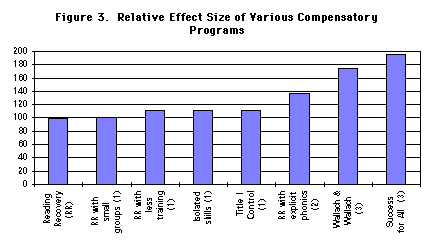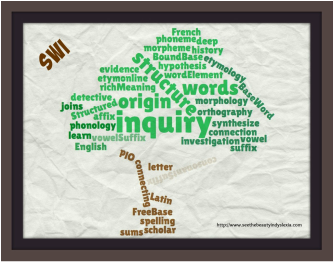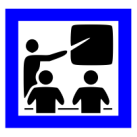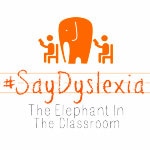Thanks to the efforts of The Gaab Lab -- There are 31 MYTHS about dyslexia debunked in this section on their website. They spent all of October 2019 posting these on Twitter then compiling them in one area on their website. These myths are accompanied by embedded links to the research, articles and videos. Yup, it's a treasure trove!
Web Pages--My Picks
|
Videos--My Picks
|
dyslexia myths -- debunked!
Thanks to the efforts of The Gaab Lab -- There are 31 MYTHS about dyslexia debunked in this section on their website. They spent all of October 2019 posting these on Twitter then compiling them in one area on their website. These myths are accompanied by embedded links to the research, articles and videos. Yup, it's a treasure trove!
What should your doctor know about dyslexia?
|
Doctors and healthcare professionals should be screening for dyslexia early, especially with the information available today on early characteristics that many children under age 5 exhibit. The Healthcare Professional's Screening packet is a great first step for any age.
Download this healthcare provider screening packet, brought to you by the Decoding Dyslexia network.
| |||||||
What does Not work:
How effective is the Reading Recovery Program?
Reading Recovery's origins began more than 30 years ago in New Zealand, long before the best, tried-and-true research was conducted on how to effectively teach our most struggling students to read. However, Reading Recovery programs continue to be used in our schools and have a cult-like following that is difficult to penetrate, despite their ineffective results as proven by the high number of children who are not reading at grade level and by the existance of the large gap between the highest and lowest achieving students in the areas of reading & writing. Most non-Reading Recovery minded people are baffled by the strong beliefs held by RR teachers and schools because of the existance & abundance of brilliant, scientific-research on the BEST Scientific teaching methods for teaching students how to read. The article below, from Learning Difficulties Australia, November 2013, discusses the ineffectiveness of the Reading Recovery Program, the manipulation of data by its teachers in New Zealand and the current data which shows 66% of its students still not reading proficiently. Read my blogpost for more information (Sept. 7, 2014)
Click here to read this from Examine.com:
Reading Recovery, not for the dyslexic or anyone else! by Robin Hansen, Special Education Examiner 
Click to be redirected to great links and info about
Reading Research on Decoding Dyslexia OH's website. Click here to read this from LD Online:
Researchers Urge Officials to Reject Reading Recovery By: David J. Hoff |
what does work:Structured word inquiry (swi) Structured Word Inquiry has been the single most effective way of teaching orthography and reading with my students. It is not a program or a method per se, it is an understanding of how the written word works that propels an educator to be able to teach effectively, the skills necessary for spelling and reading. This understanding is what empowers students (of any age) to apply logical, meaningful connections within orthography and to while reading & spelling.
As an educator, I am expected to remediate my students skills as well as provide avenues in which students converse with their peers, regardless of skill-set, develop communication skills for explaining themselves, their thinking and to defend a stance they are taking with clear ideas. This has seemed like an impossible task in a resource room in years past. However, SWI is helping kids discover their own abilities to think, reason and defend the orthographic system because we've discovered that "English is NOT crazy". It is built on structure and meaning. In a traditional phonics-based instructional setting, we teach phonemes and their grapheme correspondences which, unfortunately, fails quite often. Think about these words: <ear> <great>, <learn>, & <react>, all of them have the vowel letters <ea> in them, but, they all sound differently. Students have much to memorize without any meaning attachment or connections to other words whose structure and meaning make sense. In a phonics-based approach, we would have spent a lot of time teaching word families with each of these words (separately). We would have studied <ea> words that rhyme ... categorizing them into charts to discover which spelling or pronunciation was more frequent. We would have looked for quantity vs quality. Spending time with traditional word families focuses on building a phoneme-grapheme relationship only, which is just a memorization task. For those who have great visual memories for orthographic patterns, this works. For those who do not have such a large bucket in their brain, this is a nightmare. The difference in teaching with SWI, is that it's approach is to teach connections words have with each other via their meanings, history and morphological structures first, then look at its pronunciation. With SWI, we look at how words are related in meaning and history (etymology) to find trails and nuggets of knowledge that lead to a deeper well of meaning and connection. We would study the words that share a qualtiy relationship with one another such as with <ear>, our word list would be: ear, hear, hearing, heard, ears, earring. We would find that the structure, history and meaning connect. We would discover affixes such as <-ing> in <hear> + <ing> but how <earring> does not share that same suffix, it is a compound word: <ear> + <ring> and that the two <r>'s exist to preserve the meaning that an earring is a ring that is placed on the ear. In words such as <react> we would learn that a phoneme does not cross a morphological boundary. The <ea> is not functioning as a digraph in this word. It is made of a prefix and a base word: <re> + <act> --> react There is so much more depth and quality going on in a SWI lesson than memorization. Kids (and adults) begin to make connections to many other words. Their spellings begin to unveil themselves. Think of the way this word sounds: /reeakshun/ If you were a beginning speller and went by the sounds you hear, you'd probably spell it something like the way it is pronounced: <reeacshun> or <reeackshin> but when kids are taught that structure of words is based on the meaning and morphological structures, they are likely to recognize the word's relationship to <act>, plus the affixes to build the word in this way: <re> + <act> + <ion> --> reaction To learn more about SWI, the following websites and scholars offer amazing resources and a wealth of knowledge. Word Works Kingston by Dr. Pete Bowers LEX: Linguist-Educator Exchange by Gina Cooke DTI: Dyslexia Training Institute by Kelli Sandman-Hurley | ||||||||||||
Research ArticlesWhy NOT Whole Language or Guided Reading
Click here to read this Executive Summary Report
READING RECOVERY: AN EVALUATION OF BENEFITS AND COSTS Bonnie Grossen and Gail Coulter University of Oregon Barbara Ruggles Beacon Hill Elementary, Park Forest, Illinois Executive Summary 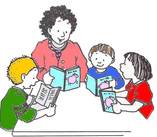
Fountas & Pinnell's response to their LLI program NOT being useful for students with skills low enough to qualify them for an IEP, such as learning disabled and dyslexics. Click here to read their blog with comprehensive information. (it appears that the link is broken, click on the file to the right to read their response). Another comprehensive article on the Imbalance of a Whole Language Program in LDonline.org; resource info from Louisa Moats.
what colleges aren't teaching educators about reading...And What Our Teachers Aren't Learning in their College Prep Courses..... Study done in 2006----excellent read.
|
Ted-Ed videos on Sense of EnglishOrton-Gillingham MethodsIDA -- teacher resourcesFROM INTERNATIONAL DYSLEXIA INSTITUTE (IDA) DYSLEXIA IN THE CLASSROOM--PAMPHLET FOR TEACHERS:
Among all the websites noted above and the books in the Book Tab; this resource was aimed directly for teachers. The International Dyslexia Association (IDA) sent this resource guide to every single school in America in November 2014. Many school principals didn't pass this informational guide along to their teachers. Please share with others and be sure to ask your principal to watch for any emails from IDA as they will produce high-quality informational guides to help teachers teach their students.
Structured Literacy via International Dyslexia Assoc (IDA) --
Effective Reading Instruction for Dyslexics
Structured Literacy Council on Facebook
| ||||||||||||||||||
Vision Therapy is not for reading problems
|
Vision Therapy ??.....NOT
Check out the 2009 Policy Statement from the American Academy of Ophthalmology below (paper #3) among several others from the medical field. Paper 1 --Pediatrics aap publications Paper 2 --Pediatrics aap May 2015 Paper 3 --Am Academy of Ophthalmology Paper 4 --U of M Dyslexia Help |
|
| AAO--Vision Therapy_learning-disabilities-dyslexia-vision-2009.pdf | |
| File Size: | 195 kb |
| File Type: | |
MOre of what works and other great resources:
Mindfulness in education & dyslexia
|
Michigan Collaborative for Mindfulness Education
http://www.MC4ME.org/ (see blogpost from March & April 2014 for more information) |
|
Join the dyslexia quest with elisheva schwartz
Elisheva is on a personal and professional quest to learn more and inform others about dyslexia: from its challenges, strengths, success stories, to digging deeper into the minds of those with neuro-diverse thinking processes in order to enlighten and inform. She removes myths, uncovers the ways people have overcome struggles and allows us to gain insight, persevere and continue to ask questions and seek answers.
Her interviews are videoed on her website and are also available on podcasts--sign up to receive noticifications of new ones--so worth the time to listen/watch, her interviews help one develop a broader perspective and I always learn something from them.
Her interviews are videoed on her website and are also available on podcasts--sign up to receive noticifications of new ones--so worth the time to listen/watch, her interviews help one develop a broader perspective and I always learn something from them.
Math--dyscalculia; comorbidity 57% have ld in reading/spelling

This Science Daily article is about the higher incidents of dyscalulia, its effects and the higher than realized comorbitity (exhistance in conjunction with) in those with dyslexia.
Bling and swag to support Dyslexia!!
|
Want a great way to support someone with bling or swag?!?! Jewelry is always a great option! Who wouldn't like a mug or a bag or a shirt?? Google dyslexia swag, shirts or check out sites like Zazzle or Etsy. Many of the products on these sites raise money for dyslexia awareness.
Here are a few links: Jewelry http://www.pqbd.org/ SayDyslexia Swag: (MI) https://www.zazzle.com/saydyslexia/products?st=date_created Dyslexia (Utah): http://decodingdyslexiautah.bigcartel.com/ SayDyslexia Rally: http://www.cafepress.com/saydyslexiarally Dyslexia Swag (Iowa): https://stores.inksoft.com/decoding_dyslexia |
ORGANIZATIONAL TOOLS
Promoting websites that aren't specific to dyslexia or learning disabilities is not usually something I include, however, the Erin Condren company has such fun organizational tools to use that I find myself actually using them (which says A LOT)!! Writing lesson plans down or using a calendar to mark appointments is not my thing, but with the busyness of life I find I need to dump the information I'm holding in my head onto paper to keep it all organized. Since this is not a natural strength of mine, I've had to find methods that entice me to want to do them. I actually look forward to writing my lesson plans and since the book is so well organized and thought out--I keep track of my grades, classroom arrangement, long-range planning and parent contact info., all in one handy place. Each page is colorful and there are quotes filtered throughout that have inspired and motivated me through-out the year. If you need a little "push" to get organized, I'd suggest buying a Family Planner (calendar) or other organizing tool from this company. You pay a little more, but if it works for you, it's so worth it!!
General disclaimer: The views expessed on this website are soley my own, they are not intended to do any harm or misrepresent anything or anyone. There are links within the site that are to affiliate sites or advertising for which I may receive minimal compensation.

